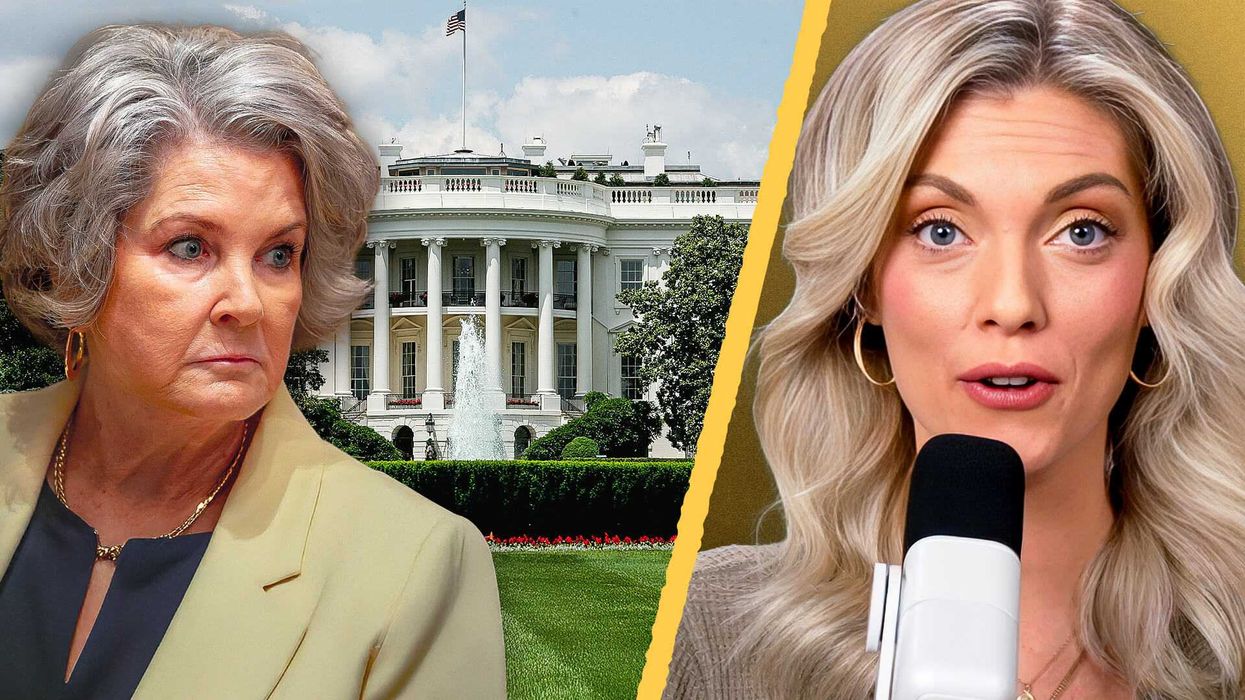
© 2025 Blaze Media LLC. All rights reserved.
The six things you're NOT supposed to do in an economic downturn (hint: we did and continue to do all of them)
May 29, 2014
"Government hampering aggravates and perpetuates the depression. Yet, government depression policy has always (and would have even more today) aggravated the very evils it has loudly tried to cure."
During and after the financial crisis of 2007-2008, the federal government intervened with every supposed weapon in its arsenal, in order to "stimulate" the economy and "prevent the next Great Depression." This philosophy was brought to the forefront again recently in light of the release of Treasury Secretary Timothy Geithner's, "Stress Test."
But since the onset of the downturn in 2007, multiple indicators suggest that the U.S. economy is not experiencing a substantive or sustainable recovery. For example:
- The number of Americans on food stamps averaged ~26 million during 2007 versus a total of 46 million as of February 2014
- The government's broadest measure of unemployment clocked in at 8.2% when the Down Jones Industrial Average peaked in October 2008, versus 12.3% as of April 2014
- The government's most commonly reported measurement of unemployment has fallen below 6.5% only in concert with people leaving the workforce in droves (labor participation is at its lowest point since 1977)
- While certain financial assets like stocks have appreciated, the Federal Reserve has continued its near-zero interest rate policy instead of letting such rates normalize, indicating that "a highly accommodative stance of monetary policy remains appropriate" to meet its dual mandates of maximum employment and price stability
 The most commonly reported U.S. unemployment rate (BLS data series LNS14000000), which peaked at 10.0% in October 2009, has fallen in concert with a decline in labor force participation (BLS data series LNS11300000). (Data Source: BLS)
The most commonly reported U.S. unemployment rate (BLS data series LNS14000000), which peaked at 10.0% in October 2009, has fallen in concert with a decline in labor force participation (BLS data series LNS11300000). (Data Source: BLS)
Or as the Wall Street Journal summarized it in context of news this morning that U.S. GDP contracted at a 1% pace in the first quarter of 2014:
"Even if it is temporary, the first-quarter downturn reflects a pattern seen repeatedly over the past five years. The worst recession since the Great Depression ended in June 2009, but the economic recovery has struggled to gain traction. Job growth has been largely lackluster even as the unemployment rate has slowly fallen. Sluggish wage growth has restrained consumer spending. The housing market surged in 2012 and into 2013, but has slowed over the last year."
Murray Rothbard, an ardent libertarian economist, political philosopher and prolific writer may have foreseen all of this. Based on his study of economic history, he proposed an entirely different set of cures to economic downturns than the Bush/Obama regimes undertook, as outlined in his seminal work, "America's Great Depression."
Namely, Rothbard argued that government should avoid intervention during a downturn, only speeding price adjustments by freeing markets up and reducing the burdens on their participants.
While it is impossible to prove the hypothetical of what would have occurred during the recent financial crisis should policymakers have heeded Rothbard's prescriptions, some such as financial writer Jim Grant in his upcoming "The Forgotten Depression," argue that the recession of 1920-1921 reflects a real-life example of the merits to following just such a Rothbardian policy during a collapse.
You can judge Rothbard's words for yourself:
If government wishes to see a depression ended as quickly as possible, and the economy returned to normal prosperity, what course should it adopt? The first and clearest injunction is: don’t interfere with the market’s adjustment process. The more the government intervenes to delay the market’s adjustment, the longer and more grueling the depression will be, and the more difficult will be the road to complete recovery.
[sharequote align="center"]The more the government intervenes...the longer and more grueling the depression will be[/sharequote]
Government hampering aggravates and perpetuates the depression. Yet, government depression policy has always (and would have even more today) aggravated the very evils it has loudly tried to cure. If, in fact, we list logically the various ways that government could hamper market adjustment, we will find that we have precisely listed the favorite "anti-depression" arsenal of government policy. Thus, here are the ways the adjustment process can be hobbled:
(1) Prevent or delay liquidation. Lend money to shaky businesses, call on banks to lend further, etc.
(2) Inflate further. Further inflation blocks the necessary fall in prices, thus delaying adjustment and prolonging depression. Further credit expansion creates more malinvestments, which, in their turn, will have money to be liquidated in some later depression. A government "easy money" policy prevents the market’s return to the necessary higher interest rates.
[instory-book ISBN="9780945466055"]
(3) Keep wage rates up. Artificial maintenance of wage rates in a depression insures permanent mass unemployment. Furthermore, in a deflation, when prices are falling, keeping the same rate of money wages means that real wage rates have been pushed higher. In the face of falling business demand, this greatly aggravates the unemployment problem.
(4) Keep prices up. Keeping prices above their free-market levels will create unsalable surpluses, and prevent a return to prosperity.
(5) Stimulate consumption and discourage saving. We have seen that more saving and less consumption would speed recovery; more consumption and less saving aggravate the shortage of saved-capital even further. Government can encourage consumption by "food stamp plans" and relief payments. It can discourage savings and investments by higher taxes, particularly on the wealthy and on corporations and estates. As a matter of fact, any increase of taxes-and-government spending will discourage saving and investment and stimulate consumption, since government spending is all consumption. Some of the private funds would have been saved and invested; all of the government funds are consumed. Any increase in the relative size of government in the economy, therefore, shifts the societal consumption/investment ration in favor of consumption, and prolongs the depression.
(6) Subsidize unemployment. Any subsidization of unemployment (via unemployment "insurance," relief, etc.) will prolong unemployment indefinitely, and delay the shift of workers to the fields where jobs are available.
These, then, are the measures which will delay the recovery process and aggravate the depression. Yet, they are the time-honored favorites of government policy, and, as we shall see, they were the policies adopted in the 1929-1933 depression, by a government known to many historians as a "laissez-faire" Administration."
Alternatively, what should government do during an economic downturn? According to Rothbard:
There is one thing the government can do positively, however: it can drastically lower its relative role in the economy, slashing its own expenditures and taxes, particularly taxes that interfere with saving and investment. Reducing its tax-spending level will automatically shift the societal saving-investment–consumption ratio in favor of saving and investment, thus greatly lowering the time required for returning to a prosperous economy. Reducing taxes that bear most heavily on savings and investment will further lower social time preferences. Furthermore, depression is a time of economic strain. Any reduction of taxes, or of any regulations interfering with the free market, will stimulate healthy economic activity; any increase in taxes or other intervention will depress the economy further.
In sum, the proper governmental policy in a depression is strict laissez-faire, including stringent budget slashing, and coupled perhaps with positive encouragement for credit contraction.
Want to leave a tip?
We answer to you. Help keep our content free of advertisers and big tech censorship by leaving a tip today.
Want to join the conversation?
Already a subscriber?
Ben Weingarten is a writer, commentator, and editor at large at RealClearInvestigations. He is a senior contributor at the Federalist and writes columns for Newsweek and the Epoch Times.
Ben Weingarten
Ben Weingarten is a writer, commentator, and editor at large at RealClearInvestigations. He is a senior contributor at the Federalist and writes columns for Newsweek and the Epoch Times.
more stories
Sign up for the Blaze newsletter
By signing up, you agree to our Privacy Policy and Terms of Use, and agree to receive content that may sometimes include advertisements. You may opt out at any time.
Related Content
© 2025 Blaze Media LLC. All rights reserved.
Get the stories that matter most delivered directly to your inbox.
By signing up, you agree to our Privacy Policy and Terms of Use, and agree to receive content that may sometimes include advertisements. You may opt out at any time.






